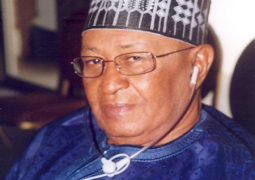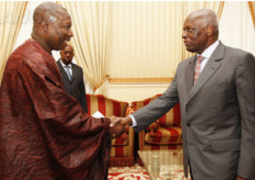It is now exactly 49 years since Nigeria won political independence from her colonial master - Britain. The masterminds of that political feat were Sir Tafewa Balewa (Nigeria's first Prime Minister), Nnamdi Azikiwe (Nigeria's first President), and Chief Obafemi Awolowo (who was described after his death as the best president Nigeria never had). They are known as the Founding Fathers of the Nigerian nation. Since then Nigeria has had a succession of leaders both civilian and military, but with the military ones predominating. Currently, Nigeria is under the watch of Alhaji Umaru Musa Yar'dua who was elected in 2007.
In its 49 years of existence, Nigeria has gone through a civil war that threatened its territorial integrity; an annulment of the 1993 presidential election results, which nearly put the country on the brink of a break-up; and a series of sectarian violence that has left the world dumbfounded in its ghastly aftermath. In all of this turbulence, Nigeria has risen like the phoenix from the ashes. It is this ability to become successful again after seeming to have failed completely that is the defining quality of Nigeria and the Nigerian people. This puts a lie to the cynical opinion being put about that Nigeria is nearing a failed state.
Additionally, statistics about the Nigerian economy are impressive and serve to shore up her status as a regional might. It is classified as an emerging market and is rapidly approaching middle income status, with its abundant supply of resources, well developed financial, legal, communications, transport sectors and stock exchange ( the Nigerian Stock Exchange), which is the second largest in Africa. Nigeria is ranked 37th in the world in terms of GDP. Besides, it is the 12th largest producer of petroleum in the world and the 9th largest exporter, and has the 10th largest proven reserves.
It also has one of the fastest growing telecommunications markets in the world, with major emerging market operators (like MTN, Etischat, Zain, and Globacom) basing their largest and most profitable centres in the country. The Nigerian government has recently begun expanding this infrastructure to space-based communications, because Nigeria has a space satellite that is monitored at the Nigerian National Space Research and Development Agency Headquarters in Abuja.
In arts and culture, Nigerians have surpassed themselves. The father of the novel in African literature is a Nigerian - Chinua Achebe. His trailblazing novel Things Fall Apart published in 1958 charted the direction for Literature-in-English on the continent. Ever since its publication, Nigerians have gone ahead to win every literary prize there is to win in the world. The Nobel Prize for Literature (Wole Soyinka), the Booker Prize (Ben Okri and Chinua Achebe), the Commonwealth Prize ( Festus Iyayi, Ben Okri, Helon Habila, Chimamanda Ngozi Adichie), the Caine Prize ( Helon Habila, A.Afolabi, E. Osundu), the Pulitzer Prize (Dele Olojode), the Orange Prize ( Chimamanda Ngozi Adichie). The phenomenon called Nollywood feeds off this strong and rich literary heritage.
Therefore at 49, a relatively young age in the life of a nation, Nigeria cannot and should not be written off as a failed state, though she has the potential to accomplish a lot more than it has already done. It is simply struggling to come to terms with her peculiar challenges. We are optimistic that despite these challenges - political, social and economic - that Nigeria is grappling with, she will in the near future find her own rhythm and figure out a formula to unlock her potential for lasting greatness. A peaceful, progressive and prosperous Nigeria is a blessing to humanity.
"The most important thing in life is not the winning but the taking part; the essential thing is not conquering but fighting well".
Pierre de Coubertin




